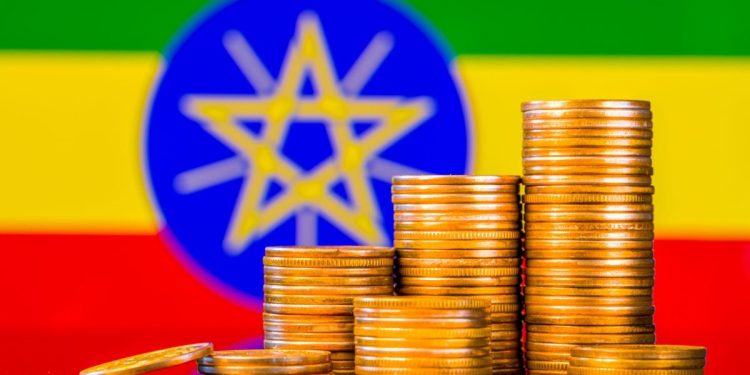Businesses Flock to Ethiopia’s Newly-Opened Banking Market
Ethiopia is opening its banking sector to foreign players for the first time in five decades, drawing swift interest from Kenya’s biggest lenders and regional heavyweights.
Bonface Orucho, bird story agency
Ethiopia’s banking market, once sealed off to foreign participation, has become the continent’s next major frontier. Following a series of sweeping reforms, the country is now inviting regional banks to invest and compete in one of Africa’s least-penetrated — and what could potentially be one of the continent’s largest due to its population — financial markets.
In a June 2025 directive, the National Bank of Ethiopia (NBE) formally allowed foreign banks to apply for local licences. The change follows years of incremental liberalisation under Prime Minister Abiy Ahmed’s administration, including the partial float of the birr in 2024 and the January 2025 launch of the Ethiopian Securities Exchange. In line with the Banking Business Proclamation No. 1360/2024, passed in December 2024 and implemented in 2025, foreign lenders can now operate through subsidiaries, branches, or equity acquisitions in existing banks.
The accompanying directive, Requirements for Licensing and Renewal of Banking Business and Representative Office Directive No. SBB/94/2025, caps individual foreign ownership at 40% and total foreign shareholding in any local bank at 49%.
“Foreign entrants must also maintain a minimum paid-up capital of 5 billion birr, or roughly US$38.5 million, hold an investment-grade credit rating, and obtain a no-objection letter from their home regulator,” according to the directive.
These conditions mark Ethiopia’s first full-scale opening of its financial system since the 1975 nationalisation of private banks. Kenya’s top lenders are already leading the charge into the lucrative market. Kenya Commercial Bank (KCB) has opened talks to acquire up to a 40% stake in a local Ethiopian bank within the next 18 months, according to reporting by Business Daily and Bankers Globe. The move positions KCB as one of the first foreign lenders to take advantage of Addis Ababa’s liberalisation drive. The group plans to finance the acquisition using proceeds from its sale of National Bank of Kenya to Access Bank of Nigeria, strengthening its regional expansion reserves.
<script src=”https://bird.africanofilter.org/hits/counter.js” id=”bird-counter” data-counter=”https://bird.africanofilter.org/hits/story/?id=2523&slug=businesses-flock-to-ethiopia-s-newly-opened-banking-market” type=”text/javascript” async=”async”></script>
KCB’s chief executive, Paul Russo, described Ethiopia as a “high-potential growth market,” citing its population of more than 120 million and low banking penetration of about 46%. With a third of its net income already coming from regional subsidiaries, the deal represents a strategic diversification play for the bank.
Equity Group is also accelerating its entry strategy. In September, Equity Group chief executive James Mwangi met with officials from the Ethiopian Investment Commission to discuss licensing and operational frameworks, according to Semafor Africa.
Mwangi said the bank aims to “serve as an example for other foreign companies that wish to operate in Ethiopia.”
Both lenders are betting that early entry will give them a competitive advantage as Ethiopia’s financial sector diversifies. Kenya’s experience with regional banking expansion also gives these banks a playbook to work with. Equity’s operations in the Democratic Republic of Congo, for instance, have become its second-largest profit centre. According to Equity’s 2025 half-year results, its DRC subsidiary, Equity BCDC, posted a net profit of US$71.4 million, a 22% increase over 2024, accounting for more than a quarter of group earnings.
The excitement around Ethiopia’s market opening is tempered by a cautious recognition of its hybrid liberalisation model. According to economist Ken Gichinga of Mentoria Economics, Ethiopia is pursuing “win-win partnerships where they can tap into the efficiency and innovation of private foreign players but still make sure that at the end of the day the government has the final say.”
That caution reflects what Ethiopian economist Henok Assefa calls “a deliberate balance between openness and discipline.”
“Ethiopia is learning to open without losing balance,” Assefa explained. “The new banking proclamation invites foreign capital while hard-wiring prudence into every clause. For investors, discipline is the key to unlocking opportunity.”
He argues that Ethiopia’s reforms are not designed for quick inflows but for sustainable partnerships. “This is not a transactional market; it’s a relationship market. The battle for deposits will be won through trust, convenience, and ecosystem linkages, not promotional interest rates.”
That emphasis on discipline is visible in the numbers. Deposits in Ethiopia’s banking system reached ETB 3.5 trillion by June 2025, a 41% annual increase, among the fastest in Africa. Yet, when adjusted for inflation and currency effects, real domestic savings growth is closer to 5-6%. The structure of ownership also reflects Ethiopia’s measured approach. Foreign investors can own up to 40% of an existing bank or 100% of a new greenfield entrant, but total foreign participation is capped at 49%.
“The design is meant to invite capital and capability while preventing dominance,” Assefa said. “It’s a system that tests partnership quality more than risk appetite. The banks that succeed will be those that treat ownership limits not as obstacles but as incentives to build long-term joint ventures.”
This structured reform strategy is consistent with Ethiopia’s commitments under its 2024–2026 IMF programme, which prioritises gradual liberalisation and monetary stability.
The cautious sequencing has been mirrored across other sectors. In telecommunications, Safaricom’s experience has revealed the limits of Ethiopia’s openness. The Kenyan telco, which paid one billion dollars for a private operating licence in 2021, has since faced policy hurdles, including pricing disadvantages and restricted access to Ethio Telecom’s infrastructure. According to a 2025 World Bank assessment, the state-owned operator still enjoys regulatory privileges. Safaricom Ethiopia reported a loss of US$325 million in 2024 despite crossing ten million subscribers.
South Africa’s Standard Bank and Nigeria’s FirstBank have also expressed interest in Ethiopia’s financial market, while Djibouti’s Banque pour le Commerce et l’Industrie – Mer Rouge has been linked to exploratory talks. The NBE has indicated it will issue up to five foreign banking licences over the next five years. Despite the measured pace, regional confidence in Ethiopia’s reforms remains strong.
“Banks are positioning themselves for the long-term play,” said Gichinga. “Ethiopia’s reforms may be slow and state-led, but they’re real, and the first movers will have a structural advantage when the market matures.”
Beyond finance, the government’s reform agenda is reshaping sectors from housing to energy. According to the Ministry of Urban Development and Construction, more than 150,000 affordable housing units are under development through public-private partnerships. In renewable energy, the Grand Ethiopian Renaissance Dam and new independent power producer projects reflect a shift toward mixed ownership and private investment in infrastructure.
According to Assefa, “Ethiopia is engineering a controlled opening that tests partnership quality more than risk appetite. It’s an opening by design, and that design is what makes it work.”
bird story agency








